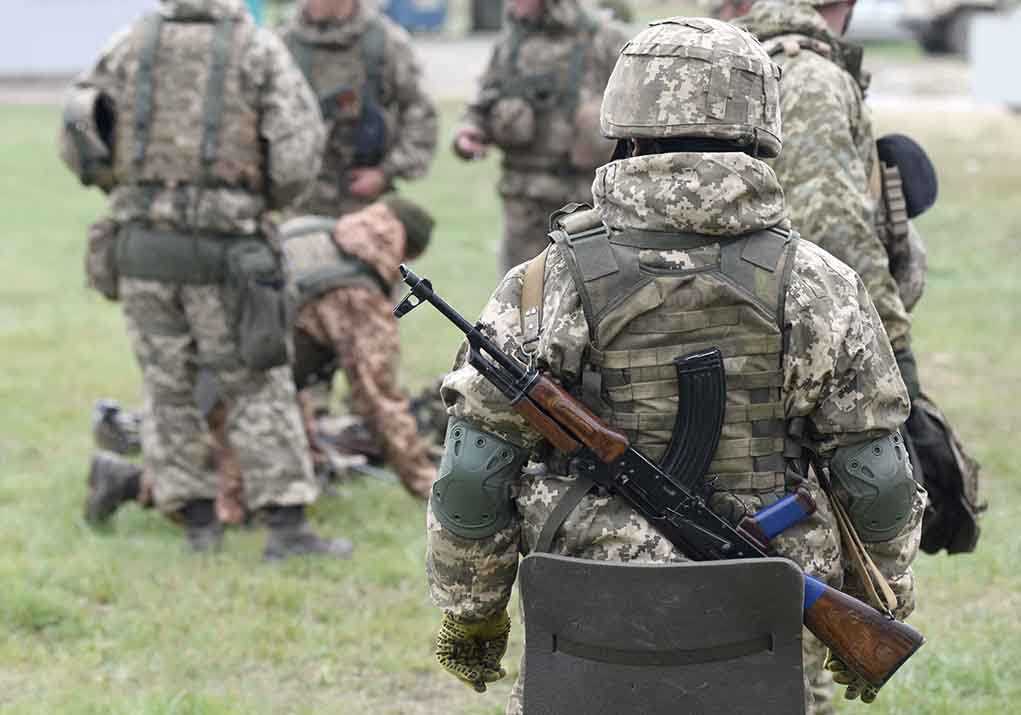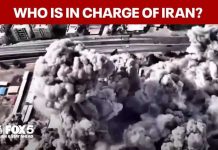
US Northern Command has initiated unprecedented security measures at military bases nationwide as Iran-backed militias establish strategic operations zones in Iraq aimed at retaliating against American forces following President Trump’s successful strikes on Iranian nuclear facilities.
Key Takeaways
- Iran-backed militias have established a joint operations room in Iraq, dividing the country into three military zones in preparation for potential attacks on US forces
- President Trump’s airstrikes on Iranian nuclear facilities were described as a “spectacular military success” that “completely and fully obliterated” key targets
- US Northern Command has implemented enhanced security protocols at all domestic military installations, including increased surveillance, patrols, and additional security personnel
- The US has begun evacuating non-combat personnel from multiple Iraqi bases and the US Embassy in Baghdad has suspended routine visa services
- Iran is considering closing the Strait of Hormuz, a critical global oil and gas route, which could severely impact global energy markets
Enhanced Military Base Security Amid Iranian Threats
The US Northern Command has implemented comprehensive security enhancements across all domestic military installations in response to escalating tensions with Iran. These measures follow direct threats from Iranian-backed forces to retaliate against American military facilities after President Trump’s decisive strikes on Iranian nuclear sites. Security upgrades include expanded surveillance systems, increased security patrols, additional armed personnel, and strengthened access controls at bases throughout the United States. Military officials are coordinating closely with local law enforcement agencies to ensure a unified security approach that protects both military assets and surrounding communities.
In Iraq, the situation has become particularly volatile as Iran-backed militias have established a sophisticated operational structure. These militant groups have divided Iraq into three military zones and created a joint operations command center specifically to coordinate potential attacks against American forces. Iraqi authorities have responded by deploying special units, including military intelligence and armored forces, around critical installations like the Ain al-Assad airbase where US troops are stationed. These preventive measures highlight the serious nature of the threats being monitored by US intelligence services.
Presidential Leadership in Military Action
President Trump’s decisive action against Iranian nuclear facilities has drawn praise from military leaders while simultaneously elevating security concerns for American installations worldwide. The strikes, which targeted multiple Iranian nuclear sites, were characterized by the President as having “completely and fully obliterated” Iran’s nuclear weapons capability. This offensive action has demonstrated America’s resolve against the Iranian regime’s aggression and nuclear ambitions, while necessitating heightened security protocols to protect American military personnel and assets from potential counterattacks.
“spectacular military success,” said President Donald Trump.
The US military has already begun implementing precautionary measures beyond enhanced security, including evacuating non-essential personnel from multiple bases in Iraq. Additionally, the US Embassy in Baghdad has initiated a second phase of staff drawdowns and suspended routine visa services due to credible security threats. These prudent steps reflect the military’s commitment to protecting American lives while maintaining operational readiness in this volatile region. The strategic withdrawal of non-combat personnel allows military leaders to focus resources on defensive capabilities against possible Iranian retaliation.
Regional Implications and Iraqi Response
The Iraqi government has expressed significant concern about being caught in the crossfire between the United States and Iran. Iraqi officials have publicly condemned the US strikes on Iranian facilities, warning of potential regional destabilization. Special security units have been deployed around US military installations within Iraq to prevent retaliatory attacks by pro-Iranian factions operating within their borders. This protective measure highlights the complex position Iraq finds itself in – attempting to maintain relationships with both the United States and neighboring Iran while preventing its territory from becoming a battleground.
“a serious threat to security and peace in the Middle East and expose regional stability to severe risks,” stated Bassem al-Awadi, Government spokesperson.
Adding to regional tensions, Iran’s Supreme National Security Council is reportedly considering closing the Strait of Hormuz, a critical global shipping lane for oil and natural gas. Such an action would have profound economic implications for global energy markets and particularly for Iraq, which depends heavily on this route for its oil exports. This potential move underscores the far-reaching consequences of the current standoff and explains why US Northern Command has implemented such comprehensive security measures. “Military leaders continue to monitor the situation closely and will adjust defensive postures as necessary to protect American interests,” according to The New Arab.











